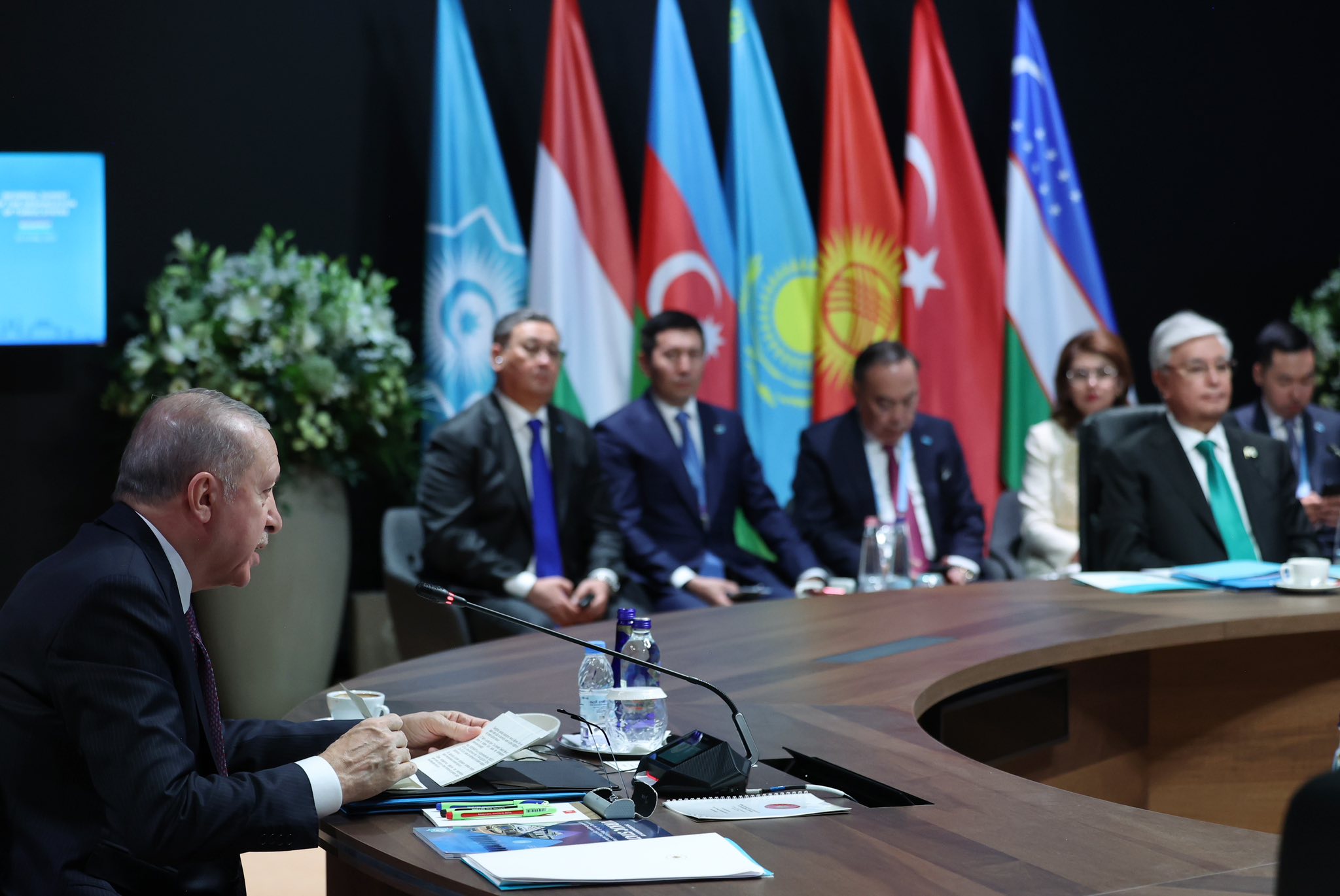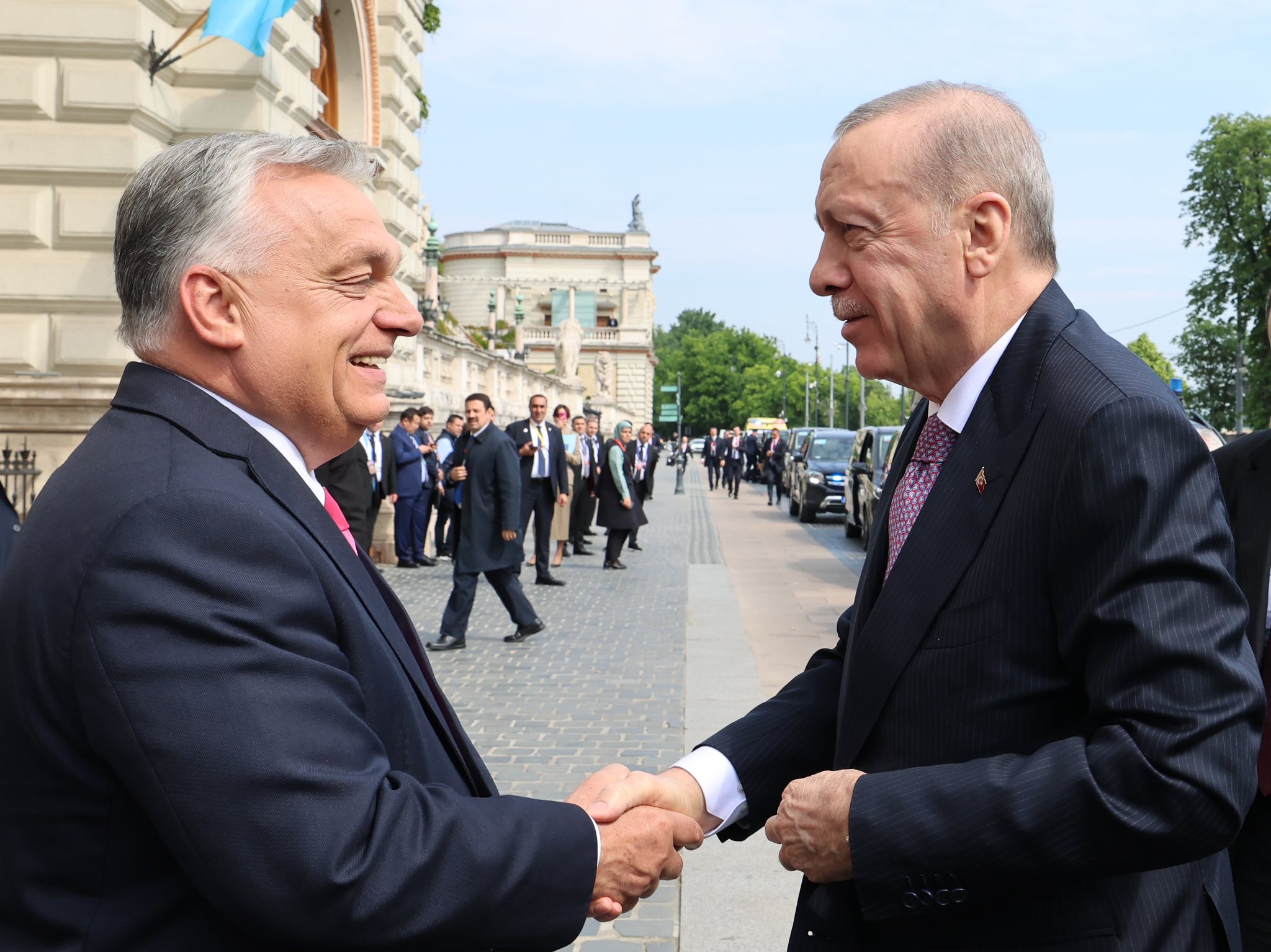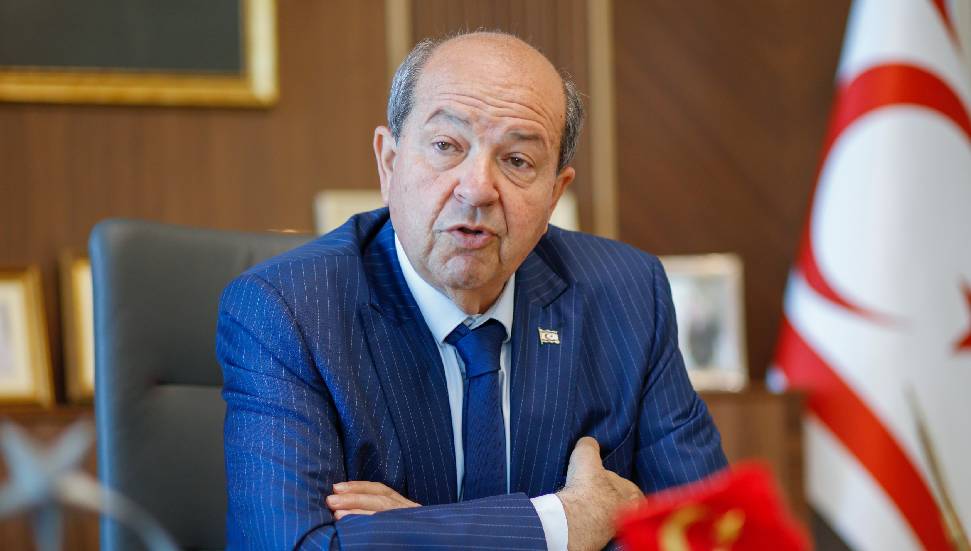The Turkish Cypriots’ non-invite to this week’s summit of the Organisation of Turkic States “does not overshadow” the north’s role within the Turkic world, Turkish Cypriot leader Ersin Tatar said on Thursday.
On this point, he pointed to the “Budapest declaration”, signed by the heads of government of the six states in attendance – Hungary, Azerbaijan, Kazakhstan, Kyrgyzstan, Turkey, and Uzbekistan – as well as OTS secretary-general Kubanychbek Omuraliev.
In the declaration, it was written that the attendees “welcome the valuable contributions of Hungary, Turkmenistan, and [the] Turkish Republic of Northern Cyprus in their capacity as observers, as an inseparable part of the Turkic world, to the network of the OTS”.
The declaration also made reference to the Cyprus problem, with it written that the six heads of government “emphasise the need to reach a negotiated, mutually acceptable, and viable settlement of the Cyprus issue based on the existing realities on the island”.
The heads of government also expressed “their solidarity with the Turkish Cypriot people as an integral part of the Turkic world in their aspirations to secure their equal, inherent rights”.
Tatar said on Thursday that these references constitute “a clear indication that our vision of a solution based on sovereign equality and equal international status has found a response at the regional level”.
He also made reference to mentions of the Turkish Cypriots in the addresses of Turkish President Recep Tayyip Erdogan and Foreign Minister Hakan Fidan at the summit, saying, “we express our gratitude to the motherland, Turkey, which stands by us under all circumstances and resolutely supports our rightful fight”.
“Turkey’s unwavering support is not only a guarantee for us, but also a guarantee of regional justice and strategic balance”.
He then moved to criticise the Greek Cypriot side’s attitude to negotiations, saying, “we are faced with an interlocutor who is isolating us and trying to render our existence invisible through political pressure, a diplomatic siege, and campaigns of exclusion”.
“With this approach, the Greek Cypriot leadership is clearly violating international norms based on human dignity. It is trying to present the illegitimate order it has established as universal. This policy is fed by the same mental source as the oppressive understanding which denies fundamental rights, which is also seen in the ongoing practices being carried out against the Palestinian people.”

Erdogan had said on Wednesday that theTurkic world would be “incomplete” without northern Cyprus, and stressed “the importance” of “increasing solidarity with the Turkish Cypriot people, who are an integral part of the Turkic world”.
“We expect the Turkic world to support the Turkish Cypriots’ struggle for rights, freedoms, and justice much more, without deviating from the path they know is right,” he said, while describing the OTS’ council of elders’ meeting in Kyrenia earlier this month as “very meaningful”.
“We believe that a Turkic world family photo without the Turkish Republic of Northern Cyprus will always be incomplete,” he said, adding, “I hope to see the days when we will accept the Turkish Republic of Northern Cyprus as a full member of our organisation in the not-so-distant future”.
The decision to not extend an invite to Tatar comes after OTS council of elders chairman and former Turkish prime minister Binali Yildirim had explained Hungary’s absence from the council of elders’ meeting in Kyrenia, despite frequently being a party to such meetings.

Yildirim had said Hungary was “concerned about the reaction of the European Union and its members, Greece, and the Greek Cypriot administration”.
In addition, last month, OTS members Kazakhstan, Kyrgyzstan, and Uzbekistan, as well as observer Turkmenistan and non-Turkic Tajikistan, signed a joint declaration with the EU declaring that all five countries “reaffirmed our strong commitment” to United Nations security council resolutions 541 and 550.
Resolution 541 said the security council “deplores the declaration of the Turkish Cypriot authorities of the purported secession of part of the Republic of Cyprus” while calling on UN member states not to recognise the north.
Resolution 550 said it “reiterates the call upon all states not to recognise the purported state of the ‘Turkish Republic of Northern Cyprus’, set up by secessionist acts, and calls upon them not to facilitate or in any way assist the aforesaid secessionist entity”.
Turkish opposition political party CHP leader Ozgur Ozel had said the joint declaration’s signing was evidence of a “collapse” of the country’s foreign policy, and even claimed that the status of Cyprus was a key part of a deal brokered by Turkish President Recep Tayyip Erdogan and United States President Donald Trump to allow the arrest of Istanbul mayor Ekrem Imamoglu in March.






Click here to change your cookie preferences